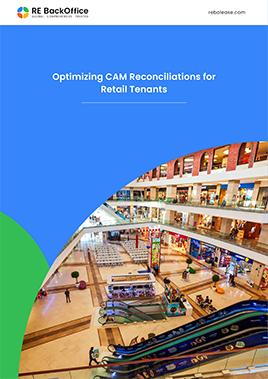
Retail leases often include specific clauses that cater to the unique dynamics of retail operations within shopping centers. These clauses help both landlords and tenants manage their responsibilities and expectations effectively. In this article, we will explore various retail clauses typically found in lease agreements, including percentage rent, sales reporting, gross sales exclusions, co-tenancy, kiosks, marketing fees, merchant associations, radius clauses, go dark provisions, shopping carts, sidewalk sales, shopping trailers, and outside marketing merchandise displays.
Percentage Rent
In retail leases, tenants may be required to pay a percentage of their gross sales to the landlord once their sales exceed a specified breakpoint. This is in addition to the base rent and other costs such as Common Area Maintenance (CAM), taxes, and insurance. The percentage rent is calculated using three main components:
- Sales Volume: The total revenue generated from the leased premises during a specific period.
- Breakpoint: The sales threshold after which the tenant must pay a percentage of their sales.
- Percentage Rate: The agreed-upon percentage of sales over the breakpoint to be paid as rent.
For example, consider a clothing store with a base rent of $12,000 per year. If the lease stipulates that the tenant must pay 5% of gross sales over a breakpoint of $275,000, the calculations would be as follows:
- January: Sales are $250,000, which does not exceed the breakpoint, so no percentage rent is due.
- February: Sales are $300,000, exceeding the breakpoint by $25,000. The percentage rent is $25,000 * 5% = $1,250.
- March: Sales are $280,000, exceeding the breakpoint by $5,000. The percentage rent is $5,000 * 5% = $250.
Types of Breakpoints
- Natural Breakpoint: Calculated by dividing the annual rent by the percentage rate. For instance, an annual rent of $12,000 with a 5% rate results in a natural breakpoint of $240,000.
- Artificial Breakpoint: Explicitly stated in the lease agreement, such as $275,000.
Sales Reporting
Retail tenants are often required to submit sales reports to the landlord on a monthly, quarterly, or annual basis. These reports help the landlord monitor the tenant’s sales performance and determine if percentage rent is due. If the tenant fails to meet the expected sales volume, either party may have the option to terminate the lease. The tenant must inform the landlord and provide a detailed report on the sales revenue generated from their outlets. If the expected sales are not met, the landlord has the right to terminate the lease and seek a new tenant. Similarly, if the tenant finds the rent high and fails to achieve the expected sales, they may choose to terminate the lease and explore other options. The obligation to provide sales reports is independent of whether percentage rent is due.
Gross Sales Exclusions
Certain transactions are excluded from the calculation of gross sales for percentage rent purposes. These exclusions might include:
- Damaged product exchanges
- Employee discounts
- Sales tax
- Refunds
Such exclusions ensure that only legitimate sales are considered when calculating the percentage rent.
Co-Tenancy
Co-tenancy clauses allow tenants to adjust their rent or terminate their lease if key anchor tenants leave the shopping center or if the overall occupancy falls below a certain level. These clauses are particularly important in shopping centers where smaller tenants rely on the foot traffic generated by larger anchor tenants.
For example, if a major tenant like Nike vacates the premises, a smaller adjacent shop might shift from a fixed rent to a percentage rent model until a new anchor tenant is secured. If the landlord fails to replace the anchor tenant within a year, the smaller tenant may have the right to terminate the lease.
Types
- Anchor Tenant Co-Tenancy: Relies on the presence of major tenants.
- Occupancy Co-Tenancy: Based on the overall occupancy rate of the shopping center.
Operating and Opening Co-Tenancy
- Operating Co-Tenancy occurs during the lease term if the anchor tenant closes its doors or if the occupancy of the shops declines within the lease period.
- Opening Co-Tenancy pertains to the initial phase when a shopping center is launched. For instance, if a sandwich shop opens based on the landlord's assurance that major tenants like KFC and Pizza Hut will also be there, but these tenants fail to open, negotiations may occur to withhold base rent or pay substitute rent until the expected tenants start operations.
Kiosks
Kiosks are small, often temporary retail spaces within shopping centers. These spaces operate under licenses rather than traditional leases, allowing for flexibility in location and duration. Kiosks typically pay a lump-sum rent and are ideal for seasonal or promotional sales.
Kiosks function without common areas or detailed estimates, operating under a simplified lump-sum rental system. This structure, referred to as a license, offers a more straightforward agreement. Kiosks are small stores, typically enclosed, allowing owners flexibility to cancel the agreement or relocate the kiosk within the center with notice. This adaptability is beneficial if a kiosk's performance is unsatisfactory in a particular location.
Marketing Fees, Media Fund, and Promotional Fund
Tenants contribute to a collective marketing fund managed by the landlord. This fund supports advertising and promotional activities to attract customers to the shopping center. The contributions may be specified in the lease, such as $0.50 per square foot per annum or a set annual amount.
The marketing fund is essential for promoting the shopping center in local media, benefiting all tenants. For example, instead of running individual radio ads, the mall might collectively promote sales events or new brands, amplifying brand visibility and contributing to effective marketing strategies. This collaborative effort forms the core of the mall's marketing strategy.
Merchant Association
Tenants may form a merchant association to plan and execute events and promotions within the shopping center. The association, often facilitated by the landlord, collects fees from tenants to fund marketing activities, ensuring that the shopping center remains a vibrant and attractive destination for customers.
Collaborative Planning
During festivals like Christmas, the mall is adorned with decorations and hosts events that attract families for shopping and dining. The well-decorated mall becomes a favored hangout, offering movies, food, and shopping in one place. Tenants coordinate promotions and allocate budgets for sales events featuring discounts to clear old stock and make room for new collections.
Radius Clause
A radius clause restricts a tenant from opening another store within a specified distance from their current location. This prevents the dilution of the customer base and ensures that the tenant’s operations remain focused on the leased premises.
For example, if a store like Target is operating in a certain area, the radius clause might specify that within a two-mile radius, there cannot be another Target outlet. This restriction is crucial in leases where tenants pay a percentage of their gross sales as additional rent because dividing the customer base could result in decreased sales and foot traffic for the existing store and the entire shopping center.
Go Dark Provision
The "go dark" clause addresses whether a tenant must keep their business operational continuously. If a tenant "goes dark" (closes temporarily), the lease may allow for specific conditions under which this is permissible. Extended or unauthorized closures can lead to lease termination.
Some landlords insist on continuous operation to uphold the mall's reputation and footfall, while others permit temporary closures for specific purposes. The clause clarifies if a tenant can halt operations yet remains obligated to pay rent during the closure. However, if a tenant exceeds the agreed-upon duration for closure without consent or valid reasons, it can be considered a breach of the lease terms, allowing the landlord to terminate the lease.
Shopping Carts
Lease agreements specify the management and organization of shopping carts within the shopping center. Responsibilities may be assigned to either the tenant or the landlord to ensure that carts do not clutter common areas and are available for customer use. Managing shopping carts involves maintaining order and ensuring that abandoned carts are collected and returned to designated areas. This avoids inconveniencing other customers and ensures efficient use of space within the shopping center.
Sidewalk Sales
Sidewalk sales allow tenants to display merchandise outside their storefronts, typically for discounted or end-of-season items. The lease will outline the frequency and duration of these sales, ensuring that they do not disrupt the shopping center’s operations. The lease agreement specifies whether tenants can conduct sidewalk sales and how often. For example, a lease may state, "The tenant can conduct sidewalk sales seven times per year for a period of four days," determining the frequency allowed for such sales.
Shopping Trailers
Shopping trailers provide additional temporary storage for tenants. The lease will define where these trailers can be parked and any size or usage limitations to avoid obstructing other tenants.
Storage and Placement
The clause specifies the tenant's right to park trailers alongside the demised premises and controls the number of trailers allowed. This ensures efficient utilization of storage space without causing inconvenience to other tenants.
Right to Outside Marketing Merchandise Display
Tenants may have the right to display merchandise outside their premises, subject to landlord approval and compliance with local regulations. This clause specifies the allowable display area and helps attract customers by showcasing key products.
For example, a tenant may have the right to use an area approximately eight feet long by five feet wide on each side of the entrance to the premises for merchandise displays. This helps attract more customers and increase sales while ensuring compliance with space regulations.
In conclusion, these retail clauses are crucial for maintaining a balanced and mutually beneficial relationship between landlords and tenants in a shopping center. By clearly defining responsibilities and expectations, these clauses help ensure the smooth operation and success of retail establishments.


